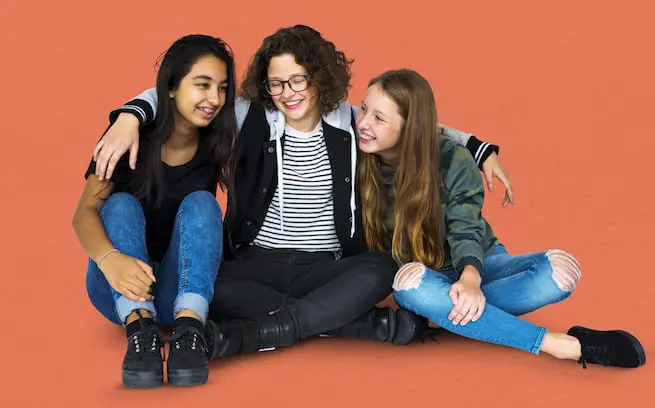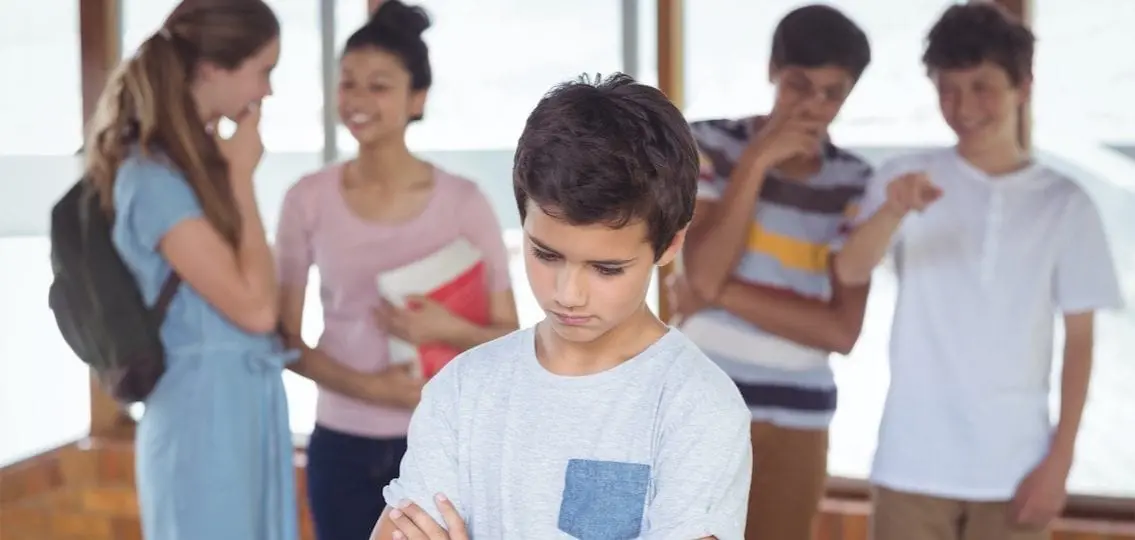“Bullying” is not my favorite word to describe mean middle school behavior. Mean behavior takes a variety of forms, but when researchers and policy makers say “bully,” they mean something very specific. Here’s the precise definition of bullying—One person or group with greater status or power chronically mistreats a person with lesser power or status over time.

Using the term “bullying” doesn’t help kids manage the social challenges they may face on a daily basis. We need a different way to talk about mean behaviors so that we can help teenagers understand what is happening and how to handle it.
5 Ways to Help Teenagers Deal with Mean Behavior
1. Be specific about the behavior.
We might be better served by referring to mean behavior in terms that specify the form it takes. Your tween might experience social aggression such as social exclusion, malicious gossip, friendship manipulation, or physical aggression.
When we give “mean behaviors” more specific terms, we focus on the precise behavior. As a result, we avoid assuming that someone who is occasionally mean is a mean person all the time. Being more specific helps us think more clearly about what we want for young people who engage in these mean middle school behaviors and about those who are the victims.
2. Find opportunities to help your teenager make different friends.
Social exclusion can hurt. But adolescents (and really all of us) can try to control our own responses to it by expanding our social world. Having just one group of friends does have its disadvantages. It becomes too easy to stake your soul on how a single group feels about you.
3. Remind your teenager, “It’s not about you.”
When a person behaves harshly, many factors are likely at work. Most have nothing to do with anything your teenager did or did not do.
4. Remind yourself, “You can only do so much.”
As parents, we have to understand that our best hope, on a good day, is influencing our own children. We have little chance of fixing someone else’s child. As much as we wish we could, we can’t make sure that someone else never treats our children meanly again.
5. Be a good listener.
What parents can do is listen to their adolescent children describe social challenges. We can help them recognize specific forms of mean behavior for exactly what they are. Parents and teens can work together to formulate goals for what they hope happens when they encounter the person again tomorrow. Lastly, we can talk about what they can do to help things go better in the future.

Most of all, we can focus on helping teens have what all adolescents deserve: companionship with a variety of people they enjoy and friends they can trust.




